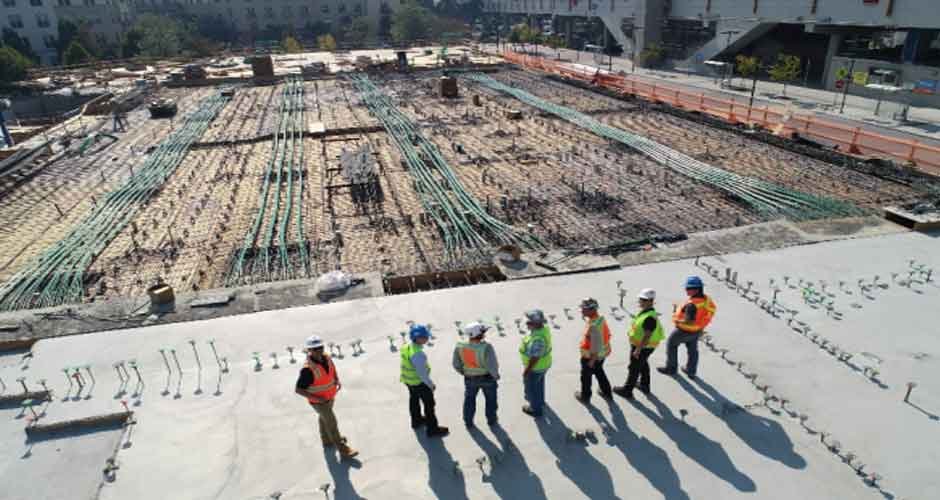Hiring a commercial contractor is a significant decision for any business. The right contractor can ensure your project is completed on time, within budget, and to the highest standards of quality. However, making the wrong choice can lead to delays, cost overruns, and subpar work.
This article explores key considerations to keep in mind before hiring a commercial contractor, particularly for projects in Tennessee.
Assessing Credentials and Experience
One of the first steps in hiring a commercial contractor is to thoroughly assess their credentials and experience. It’s crucial to verify that the contractor is licensed and insured to operate in Tennessee. A licensed contractor has met the state’s regulatory requirements, ensuring they possess the necessary knowledge and skills.
Insurance is equally important as it protects you from potential liabilities arising from accidents or damages during the project.
Experience is another critical factor. Look for contractors who have a proven track record in commercial construction. Ask for references and check their portfolio of completed projects.
A contractor with extensive experience will be more adept at handling unforeseen challenges and can provide valuable insights to enhance your project. Additionally, consider the contractor’s expertise in your specific type of project.
Understanding Local Regulations and Market
When hiring a commercial contractor in Tennessee, it’s essential to understand the local regulations and market conditions. Tennessee has specific building codes and regulations that must be adhered to for any commercial construction project.
A knowledgeable contractor will be well-versed in these requirements and can help ensure your project complies with all necessary laws.
This includes obtaining the appropriate permits and inspections, which can be a complex and time-consuming process.
In addition to regulatory knowledge, understanding the local market is crucial. Commercial construction companies in Tennessee often have insights into regional trends, labor availability, and material costs. These factors can significantly impact your project’s timeline and budget.
For instance, if there is a high demand for construction services in your area, it might be challenging to find available contractors or materials, potentially leading to delays and increased costs.
Conversely, an experienced local contractor can leverage their connections and resources to streamline the process and secure better deals.
Furthermore, Tennessee’s diverse geography and climate can present unique challenges for construction projects. From the humid conditions in Memphis to the mountainous terrain in Knoxville, each region has its own set of environmental considerations.
A contractor familiar with these local conditions can anticipate potential issues and implement strategies to mitigate risks. This local expertise is invaluable in ensuring the success of your project.
In summary, hiring a commercial contractor who understands the local regulations and market conditions in Tennessee is crucial. Their knowledge can help navigate the complexities of the regulatory landscape and optimize project outcomes by leveraging local insights and resources.
Evaluating Communication and Project Management Skills
Effective communication and project management are essential qualities in a commercial contractor. The success of your project depends on how well the contractor can coordinate with various stakeholders, manage timelines, and address issues as they arise. During the initial consultation, assess the contractor’s communication style and responsiveness.
Are they attentive to your needs and questions? Do they provide clear and detailed answers? A contractor who communicates effectively will ensure that you are kept informed throughout the project, reducing the likelihood of misunderstandings and delays.
Project management skills are equally important. A competent contractor will have a structured approach to managing the project from start to finish. This includes developing a detailed project plan, setting realistic milestones, and ensuring that all team members are aligned with the project’s goals.
Ask about their project management tools and techniques. Do they use software to track progress and manage resources? How do they handle unexpected challenges or changes in the project scope? Understanding their project management process can give you confidence in their ability to deliver on time and within budget.
Additionally, consider the contractor’s ability to collaborate with other professionals involved in the project, such as architects, engineers, and subcontractors. Effective collaboration is crucial for coordinating efforts and ensuring that all aspects of the project are executed seamlessly.
A contractor with strong interpersonal skills can foster a positive working relationship with all parties, contributing to the overall success of the project.
Ultimately, evaluating a contractor’s communication and project management skills is essential for a smooth and successful construction project. These skills ensure that the project stays on track, meets quality standards, and addresses any issues promptly and effectively.
Reviewing Contracts and Cost Estimates
Before finalizing your decision to hire a commercial contractor, it is essential to thoroughly review their contracts and cost estimates. A detailed and transparent contract is crucial for setting clear expectations and protecting your interests. The contract should outline all aspects of the project, including the scope of work, timeline, payment terms, and warranties.
Pay close attention to the fine print and seek clarification on any ambiguous terms. If needed, consider consulting with a legal professional to ensure the contract is fair and comprehensive.
Cost estimates are another critical component. You must get detailed estimates from multiple contractors to compare pricing and ensure you are getting a fair deal.
Be cautious of unusually low estimates because they may indicate subpar materials or hidden costs that could arise later in the project. A reputable contractor will provide a realistic and transparent estimate, reflecting the true cost of the project.
Additionally, discuss the payment schedule with the contractor. It’s common practice to make payments in stages, based on project milestones. Stay away from contractors who demand a large upfront payment, as this can be a red flag for potential financial instability or fraudulent behavior.
A fair payment schedule will align with the project’s progress, ensuring that payments are made after the completion of each phase.
Lastly, consider the contractor’s approach to handling changes and unforeseen issues. Construction projects often encounter unexpected challenges that may require adjustments to the original plan.
Ensure that the contract includes provisions for managing changes and additional costs, and discuss these scenarios with the contractor beforehand. Clear communication and a well-defined process for handling changes can prevent disputes and ensure a smooth project progression.
Conclusion
Hiring a commercial contractor is a critical decision that can significantly impact the success of your construction project.
By carefully assessing credentials and experience, understanding local regulations and market conditions, evaluating communication and project management skills, and reviewing contracts and cost estimates, you can make an informed choice.
These considerations are essential in Tennessee, where local expertise and regulatory knowledge are vital.












